
Timeline
Title
Country/Nationality
Winston Churchill
Sir Winston Leonard Spencer Churchill was a British statesman who served as Prime Minister of the United Kingdom from 1940 to 1945, during the Second World War, and again from 1951 to 1955. Although best known for his wartime leadership as Prime Minister, Churchill was also a Sandhurst-educated soldier, a Nobel Prize-winning writer and historian, a prolific painter, and one of the longest-serving politicians in British history. Apart from two years between 1922 and 1924, he was a Member of Parliament (MP) from 1900 to 1964 and represented a total of five constituencies. Ideologically an economic liberal and imperialist, he was for most of his career a member of the Conservative Party, which he led from 1940 to 1955, though he was also a member of the Liberal Party from 1904 to 1924.
Of mixed English and American parentage, Churchill was born in Oxfordshire to a wealthy, aristocratic family. He joined the British Army in 1895 and saw action in British India, the Anglo-Sudan War, and the Second Boer War, gaining fame as a war correspondent and writing books about his campaigns. Elected a Conservative MP in 1900, he defected to the Liberals in 1904. In H. H. Asquith's Liberal government, Churchill served as President of the Board of Trade and Home Secretary, championing prison reform and workers' social security. As First Lord of the Admiralty during the First World War, he oversaw the Gallipoli Campaign but, after it proved a disaster, he was demoted to Chancellor of the Duchy of Lancaster. He resigned in November 1915 and joined the Royal Scots Fusiliers on the Western Front for six months. In 1917, he returned to government under David Lloyd George and served successively as Minister of Munitions, Secretary of State for War, Secretary of State for Air, and Secretary of State for the Colonies, overseeing the Anglo-Irish Treaty and British foreign policy in the Middle East. After two years out of Parliament, he served as Chancellor of the Exchequer in Stanley Baldwin's Conservative government, returning the pound sterling in 1925 to the gold standard at its pre-war parity, a move widely seen as creating deflationary pressure and depressing the UK economy.
Out of government during his so-called "wilderness years" in the 1930s, Churchill took the lead in calling for British rearmament to counter the growing threat of militarism in Nazi Germany. At the outbreak of the Second World War he was re-appointed First Lord of the Admiralty. In May 1940, he became Prime Minister, replacing Neville Chamberlain. Churchill oversaw British involvement in the Allied war effort against the Axis powers, resulting in victory in 1945. After the Conservatives' defeat in the 1945 general election, he became Leader of the Opposition. Amid the developing Cold War with the Soviet Union, he publicly warned of an "iron curtain" of Soviet influence in Europe and promoted European unity. He lost the 1950 election, but was returned to office the following year in the 1951 election. His second term was preoccupied with foreign affairs, especially Anglo-American relations and the preservation of the British Empire. Domestically, his government emphasised house-building and developed a nuclear weapon. In declining health, Churchill resigned as Prime Minister in 1955, although he remained an MP until 1964. Upon his death in 1965, he received a state funeral.
Widely considered one of the 20th century's most significant figures, Churchill remains popular in the UK and Western world, where he is seen as a victorious wartime leader who played an important role in defending Europe's liberal democracy against the spread of fascism. He is also praised as a social reformer. However, he has been criticised for some wartime events – notably the 1945 bombing of Dresden – and also for his imperialist views, including comments on race.
Books by Winston Churchill
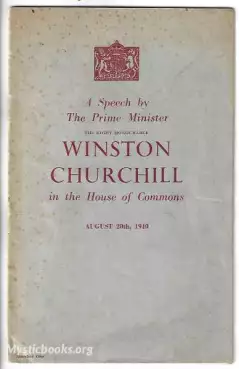
Selected House of Commons Speeches
Sir Winston Leonard Spencer Churchill (1874 – 1965) was a British politician known chiefly for his leadership of the United Kingdom during World War II. He served as Prime Minister of the United Kingdom from 1940 to 1945 and again from 1951 to 1955....
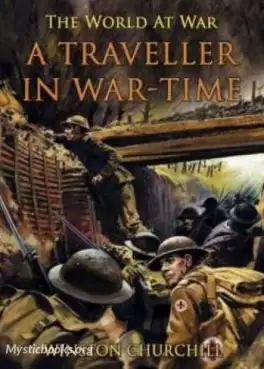
A Traveller in War-Time
A Traveller in War-Time is a non-fiction book by American author Winston Churchill recounting his travels in Europe during World War I. Released in July 1918 with the full title A Traveller in War-time with an Essay on the American Contribution and t...
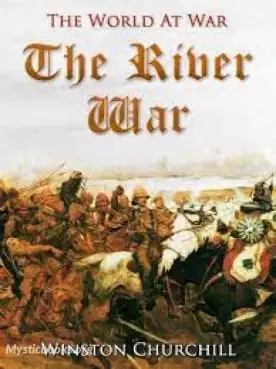
The River War: An Account of the Reconquest of the Sudan
The River War: An Historical Account of the Reconquest of the Soudan (1899), by Winston Churchill. It is a history of the conquest of the Sudan between 1896 and 1899 by Anglo-Egyptian forces led by Lord Kitchener. He defeated the Sudanese Dervish for...
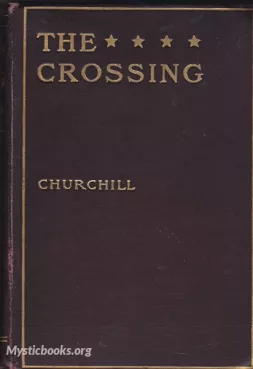
The Crossing
This is a compelling historical novel that takes readers on an extraordinary journey through the American Revolution. Published in 1904, this captivating work of fiction offers a vivid portrayal of the challenges and triumphs experienced by the early...
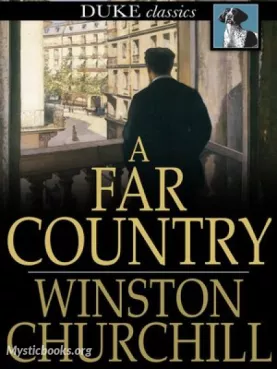
A Far Country
"A Far Country is a novel about the American dream and the corrupting influence of power. It tells the story of Hugh Paret, a young man who comes to America with big dreams and a strong moral compass. But as he rises through the ranks of the corporat...

Celebrity
Winston Churchill's satirical novel 'Celebrity' follows the meteoric rise of a young novelist, believed to be based on Richard Harding Davis, though Churchill denied it. The story explores the pitfalls and ironies of fame, particularly in the world o...
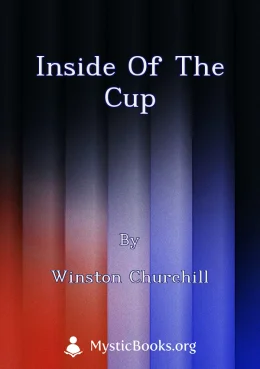
Inside of the Cup
Inside of the Cup follows the journey of John Hodder, a newly appointed rector at St. John's, a church in a wealthy neighborhood bordering the poverty-stricken Dalton Street. Hodder's idealistic faith is challenged by the hypocrisy and moral complexi...